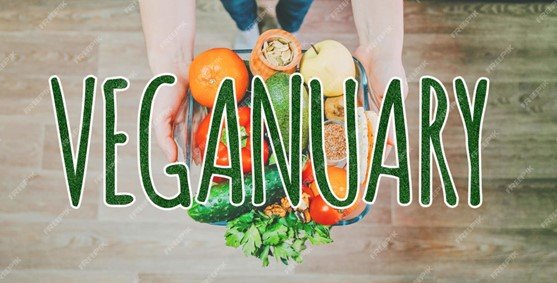Are you looking to kickstart the new year with a positive change? Going vegan for the month of January might just be the perfect option for you. Not only is it a healthy and environmentally friendly choice, but it also allows you to explore a whole new world of flavors and culinary experiences.
Give our Vegan Vish & Chips a try at our January Pop up in Lichfield on 19th and 20th January or at Square Coffee, Rugby 26th & 27th January.
Vegan Vish & Chips – Pakora Battered Artichoke, Chaat Masala Chips, Mint & Chili Garden Mushy Peas, Indian Style Chips Shop Curry Sauce, Sweet Chili & Coriander (Gluten Free
Health benefits of a vegan diet
Embracing a vegan lifestyle for a month can have numerous benefits. By eliminating animal products from your diet, you can significantly lower your risk of chronic diseases like heart disease and diabetes. A vegan diet is naturally low in saturated fats and cholesterol, which are commonly found in animal products. Instead, it is rich in fruits, vegetables, whole grains, and legumes, providing essential nutrients and antioxidants.
Furthermore, going vegan can also help with weight management and boost your energy levels. Plant-based foods are generally lower in calories, making it easier to maintain a healthy weight. Additionally, the high fiber content of a vegan diet can aid digestion and promote a feeling of fullness, reducing the likelihood of overeating.
Not only does a vegan diet benefit your physical health, but it can also have positive effects on your mental well-being. Many studies have shown that plant-based diets are associated with a reduced risk of depression, anxiety, and other mental health conditions. The abundance of vitamins, minerals, and phytochemicals found in plant-based foods contribute to overall brain health and cognitive function.
Environmental benefits of a vegan diet
In addition to the personal health advantages, adopting a vegan lifestyle for a month can also have significant environmental benefits. Animal agriculture is one of the leading contributors to greenhouse gas emissions, deforestation, and water pollution. By choosing to go vegan, you can reduce your carbon footprint and contribute to the fight against climate change.
Livestock farming requires vast amounts of land, water, and feed, putting a strain on natural resources. By eliminating animal products from your diet, you can help conserve water, preserve forests, and protect biodiversity. Additionally, reducing the demand for animal agriculture can help mitigate the negative impacts on soil quality and reduce the need for harmful pesticides and fertilizers.
Choosing plant-based alternatives also means supporting sustainable food practices. Many vegan products are made from organic, locally sourced ingredients, reducing the reliance on industrial farming methods. By opting for these alternatives, you are encouraging a more sustainable and ethical food system.
Ethical considerations of a vegan lifestyle
While health and environmental benefits are often the main drivers for adopting a vegan lifestyle, the ethical considerations should not be overlooked. Many people choose to go vegan to align their dietary choices with their values and beliefs. The animal agriculture industry is often associated with animal cruelty, intensive farming practices, and inhumane treatment of animals.
By going vegan, you are actively choosing to support a compassionate and cruelty-free lifestyle. You are helping to reduce the demand for animal products and sending a message that animals should be treated with respect and kindness. Embracing a vegan lifestyle allows you to live in alignment with your ethical principles and make a positive impact on the lives of animals.
Tips for successfully completing Veganuary
Now that you’re convinced to give Veganuary a go, here are some tips to help you successfully complete the challenge:
1. Educate yourself: Take the time to learn about plant-based nutrition, familiarize yourself with vegan food options, and understand how to meet your nutritional needs without animal products.
2. Plan your meals: Create a meal plan for the month, ensuring that you have a variety of delicious and nutritious vegan recipes to try. This will help you stay motivated and organized.
3. Stock your cupboard: Make sure to have vegan staples on hand, such as fruits, vegetables, grains, legumes, nuts, and seeds. Having a well-stocked pantry will make it easier to whip up vegan meals at any time.
4. Explore vegan alternatives: Experiment with vegan alternatives to your favorite non-vegan foods. There are now countless plant-based options available for milk, cheese, meat, and even eggs.
5. Find support: Join online vegan communities or find friends or family members who are also participating in Veganuary. Having a support system can provide encouragement, recipe ideas, and a sense of community.
Remember, Veganuary is not about being perfect. It’s about making a conscious effort to reduce your consumption of animal products and explore a new way of eating.
Happy Veganuary!
